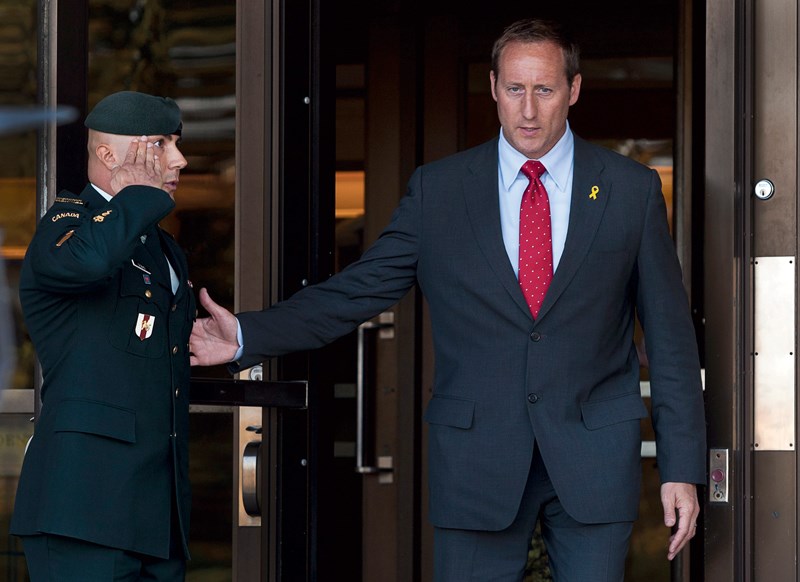Canadian military personnel and veterans suffering from post traumatic stress disorder will have a better chance of getting the medical help they need now that Canada has boosted spending to treat mental health issues.
Defence Minister Peter MacKay announced Wednesday in Halifax an additional $11.4 million has been budgeted to pay for more at least 51 more doctors, nurses, addictions counsellors and social workers to work in health clinics at Canadian military bases to help reduce wait times.
"The health needs, including the mental health needs, of military personnel are my number one priority in this role and I am committed to doing everything I can to provide the care needed for those defending our country," said MacKay, on the government website, www.forces.gc.ca.
"This funding will enhance the Canadian Forces' already robust mental healthcare programs and ensure that personnel continue to receive the highest standard of healthcare possible wherever and whenever they serve."
Opposition members and defence department union leaders who have been calling for more health service support welcomed MacKay's announcement. John McCallum, a former defence minister who served as minister of veterans affairs from 2002-2004, said the country's 10-year war effort in Afghanistan intensified from when it first began as a result of NATO lobbying efforts to have Canada take the lead role in the Kabul security mission. The increasing complexities of the war put more Canadian soldiers at risk of developing post-traumatic stress disorder and other mental health problems.
"When I was defence minister, the scale of our operations in Afghanistan was far less than what it became, and we had more resources in place then for handling the mental health issues that would, we knew, transpire from those operations," said McCallum, Liberal MP for Markham-Unionville, who was in Prince George Wednesday to attend a meeting of the Young Liberals Club at UNBC.
"Often they come from very disadvantaged positions -- lack of education, difficult socioeconomic backgrounds -- yet they serve their country with honour, they have been wounded in service of their country, but the government has not kept up with their job. The scope of the problem became much worse as the amounts of troops became so much more, and the missions became so much more dangerous for them, but resources were not put into place for those veterans in a corresponding fashion."
Canada has already budgeted $38.6 million in annual spending for mental healthcare to Canadian Forces personnel, which brings the total spending to $50 million this fiscal year. The new funding will enable the defence department to hire at least four psychiatrists; 13 psychologists; 10 mental health nurses; 13 social workers; and 10 addictions counselors.
$2.7 million has been earmarked to renew the contracts of nine physicians whose funding had been eliminated, while $1 million is targeted to pay the salaries of primary care physicians to work in military clinics where wait lists have been identified as excessive.
"Our government and the Canadian Forces take pride in the knowledge that its mental health program has been recognized among its NATO allies and by civilian organizations for its robust approach to care, its stigma reduction initiatives, its mental health research and its mental health training and awareness programs," said MacKay. "We can always do better and my focus is ensuring we do just that."



.png;w=120;h=80;mode=crop)